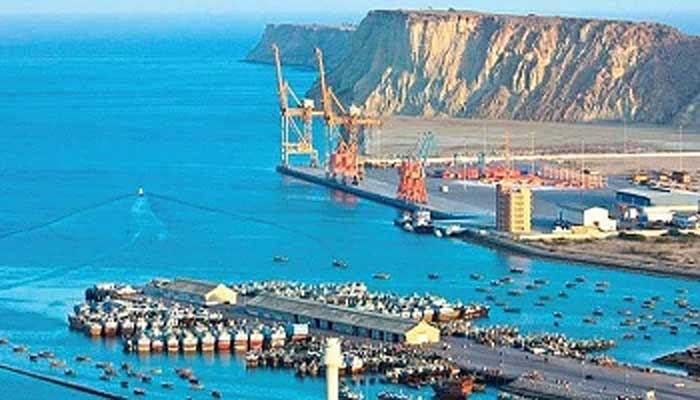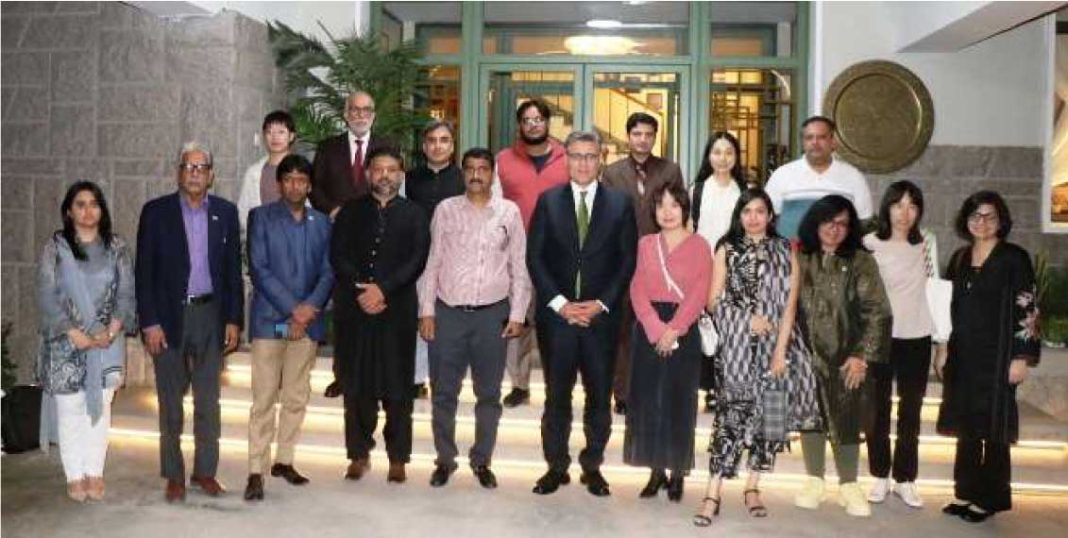

The China-Pakistan Economic Corridor (CPEC) is a flagship project of the Belt and Road Initiative (BRI), designed to enhance connectivity and economic cooperation between Pakistan and China. Launched in 2015, CPEC encompasses a network of roads, railways, pipelines, and energy projects, aiming to stimulate economic growth and development in Pakistan while bolstering China’s strategic interests in the region. The corridor holds immense significance for both nations, providing Pakistan with critical infrastructure and investment while allowing China to expand its influence in South Asia. In this context, Pakistan House in Beijing plays a pivotal role as a diplomatic and logistical hub, facilitating discussions, negotiations, and partnerships that are vital to the success of CPEC.
Facilitating Discussions
Pakistan House has emerged as a crucial venue for hosting high-level meetings and negotiations related to CPEC. The House serves as a space where Pakistani officials, diplomats, and representatives from various sectors can engage with their Chinese counterparts to discuss project timelines, funding arrangements, and implementation strategies. By providing a conducive environment for dialogue, Pakistan House ensures that discussions around CPEC remain focused and productive.
Over the years, numerous delegations have convened at Pakistan House to discuss the intricacies of CPEC. These meetings have included representatives from the Pakistani government, Chinese state-owned enterprises, and private sector stakeholders. The House has hosted discussions on critical aspects of CPEC, such as energy generation, infrastructure development, and trade facilitation. By serving as a bridge between the two nations, Pakistan House has been instrumental in navigating the complexities of bilateral cooperation under CPEC.
Key Partnerships
At the heart of CPEC are partnerships that have been initiated and nurtured at Pakistan House. The venue has facilitated collaborations between various stakeholders, including government agencies, private companies, and financial institutions. These partnerships are essential for mobilizing resources, sharing expertise, and ensuring the successful execution of projects.
One notable partnership facilitated by Pakistan House is the collaboration between Pakistani and Chinese engineering firms for the construction of energy projects. This partnership has allowed for the transfer of technology and expertise, which is crucial for enhancing Pakistan’s energy capacity. The House has also hosted discussions on joint ventures in sectors such as telecommunications, agriculture, and transport, further diversifying the scope of CPEC beyond infrastructure development.
Additionally, Pakistan House has been a focal point for signing agreements and memoranda of understanding (MoUs) between the two nations. These agreements serve as a framework for cooperation, outlining the terms and conditions for various CPEC projects. The strategic discussions held at Pakistan House have led to the establishment of critical partnerships that are driving the implementation of CPEC initiatives.
Economic Impact
The agreements and partnerships forged at Pakistan House have a significant economic impact on Pakistan. CPEC is poised to address some of the country’s pressing economic challenges, including energy shortages, infrastructure deficits, and unemployment. By facilitating discussions and agreements, Pakistan House contributes to an environment that promotes investment and economic growth.
One of the most immediate economic benefits of CPEC is the influx of Chinese investment in various sectors. The energy projects, such as coal, solar, and wind power plants, aim to generate thousands of megawatts of electricity, alleviating power shortages that have plagued Pakistan for years. This influx of energy is expected to stimulate industrial growth, attract foreign direct investment, and create job opportunities for the local population.
Moreover, CPEC’s infrastructure projects, including highways, railways, and ports, are set to enhance trade connectivity within Pakistan and with neighboring countries. Improved infrastructure will reduce transportation costs, increase efficiency, and boost trade volumes, contributing to overall economic development. By providing a platform for dialogue and negotiation, Pakistan House plays a vital role in ensuring that these economic benefits materialize for Pakistan.
Ongoing Projects
Several ongoing projects under CPEC exemplify the collaborative efforts facilitated by Pakistan House. One of the flagship projects is the construction of the Gwadar Port, which is strategically located along the Arabian Sea and is expected to become a key trade hub. The port is being developed with significant Chinese investment and aims to enhance maritime trade connectivity between Pakistan, China, and the broader region.
Another notable project is the development of the Karachi-Lahore Motorway, which is designed to improve road connectivity between major cities in Pakistan. This motorway will not only facilitate domestic trade but also connect with the broader CPEC network, enhancing regional connectivity. The agreements and partnerships established at Pakistan House have played a crucial role in the planning and execution of such infrastructure projects.
In the energy sector, several projects, including the Thar Coal Project and the Hubco Power Plant, have been initiated under CPEC. These projects aim to increase Pakistan’s energy capacity and reduce dependence on imported fuel. The House has been instrumental in coordinating discussions and agreements related to these energy initiatives, ensuring that they align with Pakistan’s energy needs and strategic objectives.
As CPEC continues to evolve, the future prospects for its initiatives remain promising, with Pakistan House playing a central role in supporting diplomatic and economic ties between Pakistan and China. The House’s ability to facilitate discussions, forge partnerships, and host key negotiations makes it an indispensable hub for CPEC-related activities. As both nations work towards realizing the full potential of CPEC, Pakistan House will continue to serve as a vital platform for dialogue and collaboration.
In the coming years, the emphasis on economic growth and development through CPEC is expected to intensify, making the role of Pakistan House even more critical. By fostering cooperation and understanding, Pakistan House not only strengthens the bilateral relationship but also contributes to the broader goal of regional stability and prosperity. Through its ongoing efforts, Pakistan House stands as a testament to the enduring partnership between Pakistan and China, paving the way for a brighter economic future for both nations.




